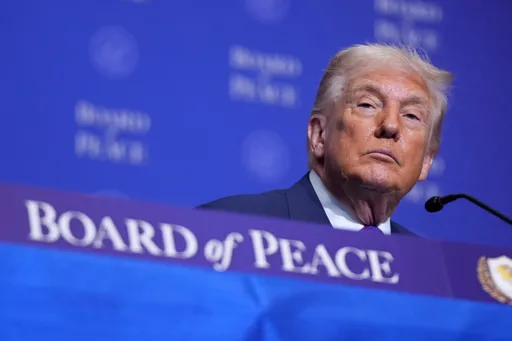A new project to promote more Muslims in the filmmaking process has been launched by advocacy group Pillars Fund in collaboration with The Walt Disney Company.
Announced on Tuesday, the Pillars Muslim Artist Database will include profiles for actors, directors, cinematographers, sound technicians, and other professionals working across the film industry in the US. Directors, producers, and casting executives can search through profiles on the network and invite artists they want to collaborate with.
The initiative comes following a report previously this year which found a dearth of Muslims depicted in popular films and Muslim characters often limited to harmful stereotypes.
“Our communities have largely been missing from behind and in front of the camera for decades. Not only has this led to terrible misrepresentations of Muslims on screen, but there is an entire demographic of talented artists who have been underutilized,” said Pillars Fund Co-Founder and President Kashif Shaikh in a statement.
“Pillars is incredibly grateful to Disney for partnering with us on this important and historic resource. We are making it easier than ever before to find Muslim professionals to work on a film or television project.”
“As part of our Reimagine Tomorrow endeavor to amplify underrepresented voices and untold stories, we are honored to support the new Pillars Muslim Artist Database,” said Latondra Newton, Senior Vice President and Chief Diversity Officer at Disney.
“The database is an additional tool for our teams and creatives across the industry to use as they develop more inclusive stories.”
In addition to that, Pillars Fund has come together with a host of leading Muslim artists to usher in the Pillars Artist Fellowship. The program will grant $25,000 in unrestricted cash rewards alongside mentorship from celebrities like Riz Ahmed, Hasan Minhaj, Mahershala Ali and Nida Manzoor.
‘Missing and maligned’
Based in Chicago, the Pillars Fund was involved in the June 2021 report on Muslim depiction on screen along with the University of Southern California (USC) Annenberg Inclusions Initiative and others.
Titled ‘Missing & Maligned: The Reality of Muslims in Popular Global Movies’, the groundbreaking study revealed the extent to which Muslim characters are either missing or negatively depicted across 200 movies released between 2017 and 2019 in the US, UK, Australia and New Zealand.
Fewer than 10 percent of them showed a Muslim character on screen, and of the 8,965 speaking characters analysed, only 1.6 percent were Muslim.
Meanwhile, less than 24 percent of Muslim characters were female.
181 of the 200 films (90.5 percent) did not even feature a Muslim speaking character. Only six films had a Muslim character in a solo, duo or ensemble lead role.
Muslims were also pigeon-holed by time periods of a film’s setting, with over 60 percent of primary and secondary Muslim characters having appeared in the historical, fantastical, or recent past.
And when Muslims – a racially and ethnically diverse community – are cast, they tend to be racially profiled, with roughly two-thirds of Muslim characters played by Middle Eastern/North Africans. This also holds true for the location of the films setting for Muslim characters, with 46 percent of Muslim portrayals rooted in the MENA region.
When it comes to character depictions, nearly 40 percent of primary and secondary Muslim characters were perpetrators of violence, while over 53 percent were targets of violence.
Furthermore, Muslims often are rendered foreign and othered: 58.5 percent were represented as immigrants, 87.8 percent spoke no English or did with an accent, and 75.6 percent were shown wearing religious garb.
Even in the realm of animation, there was not a single Muslim in 23 films included in the study.
In response to those stark findings, Pillars Fund along with British actor Riz Ahmed subsequently released a companion report titled 'The Blueprint for Muslim Inclusion' that encouraged industry leaders to hire Muslim crew members to “fundamentally change the way Muslims are portrayed on screen.”
Back in June, Shaikh says his group was calling for not just positive portrayals but more nuanced roles for Muslims, including LGBTQ roles, or those with disabilities like Riz Ahmed’s character in 2019’s Sound of Metal, which led to Ahmed being the first Muslim nominated for Best Actor at last year’s Oscars.
Launching the Pillars Muslim Artist Database can now provide an important resource for studios, where Muslims across the US can centre their talents and increase their visibility with mainstream audiences.
“There is an abundance and richness of talent in our communities, and I’m thrilled at the opportunity to invite the industry to learn from and work with us,” said Arij Mikati, Pillars Fund Managing Director of Culture Change.
“Sourcing diverse talent is a crucial part of moving the film industry into a future that better reflects the demographics and experiences of our present.”























